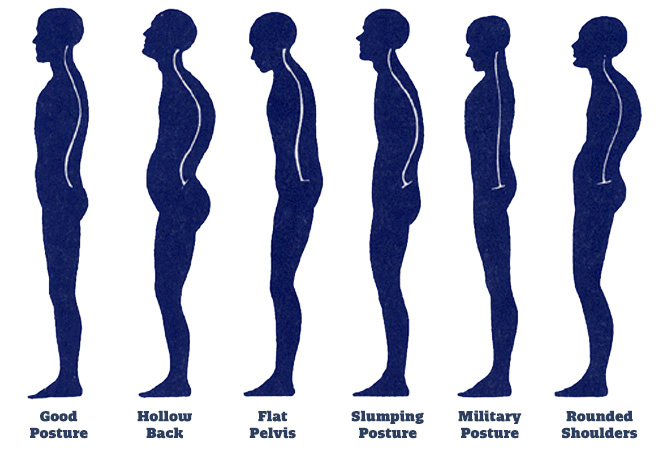Postural & Work Related Problems

The quality of your posture can have an incredible impact on your life. If you have good posture, you will perform better on the sporting field, have a healthier appearance, and even experience more confidence in your every day life. Poor posture, on the other hand, can increase the risk of certain chronic health conditions and can even cause severe pain.
Many of the patients attending our chiropractor clinic in Stoke on Trent are concerned about their posture. They know that they have a postural problem but are unsure what it is. In this post, I am going to share several common posture problems to help you understand when you need to see a chiropractor in Stoke on Trent.
What is Posture?
Posture is the way in which you hold your body upright against gravity while in a standing, sitting, or lying position. “Good” posture means you are holding your body in a natural way, with your joints correctly aligned. This position produces the least amount of stress on the body. “Bad” posture means you are out of alignment and placing excessive strain on one or more parts of your body.
If you often sit, stand or lay with poor posture if can eventually lead to long-lasting changes in the body’s postural mechanisms, including:
- The length and strength of muscles
Poor posture causes certain supporting muscles to waste away from lack of use. These under-used muscles often become short, which can compact the bones of the vertebrae. - The performance of fast twitch and slow twitch muscle fibres
The body has two types of muscles. Slow twitch (static) and fast twitch (phasic). Static muscle fibres tend to be found in the deeper layers of the muscle. They do a great job of sensing which way the body is positioned and making adjustments to keep you stable. Phasic muscle fibres are mostly used for movement. Poor posture causes muscle fatigue because it relies too much on phasic muscles and not enough on static. - Nervous system feedback on your current body position
Your body’s muscles relay information about your current body position to the brain via the nervous system. When you have poor posture for a long time and your static muscles are no longer fully engaged, the brain does not receive the full picture. As a result, it contracts phasic muscles, causing additional muscle fatigue and pain.
How Do You Know You Have Poor Posture?
There are several common symptoms of poor posture, with the most obvious ones being:
- Back pain
- Random aches and pains in your joints and muscles
- Feelings of muscle fatigue
- Rounded shoulders
- Developing a potbelly
- Having a head that either leans forward or backward
- Curved neck
- Headaches
